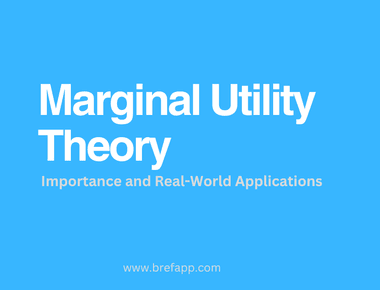
Capital in the Twenty-First Century: A Summary of Thomas Piketty's Book

Thomas Piketty is a French economist who gained international recognition with his book Capital in the Twenty-First Century. The book, published in 2013, quickly became a best-seller and sparked widespread discussion about wealth and income inequality.
Piketty’s work is important and relevant today because economic inequality continues to be a pressing issue, with many people feeling left behind by the current economic system. Piketty’s book provides a comprehensive analysis of the history and dynamics of inequality, drawing on extensive data and research.
In this article, we will provide a summary of Piketty’s book, focusing on its key ideas and arguments. We will also examine some of the criticisms of Piketty’s analysis and explore the impact his work has had on public discourse and policy debates. Finally, we will discuss the continuing relevance of Piketty’s ideas and the importance of addressing inequality in modern society.
Background
Thomas Piketty’s book “Capital in the Twenty-First Century” was written in the aftermath of the 2008 global financial crisis, which highlighted the increasing concentration of wealth in the hands of a few at the expense of the many. Piketty’s work is rooted in a long tradition of economic and social analysis that seeks to understand the factors that drive inequality in capitalist societies.
Piketty’s approach to analyzing wealth and income inequality is based on a rigorous analysis of historical data, drawing on tax records, household surveys, and other sources to construct a comprehensive picture of trends in wealth and income distribution over time. He argues that the fundamental driver of inequality is the rate of return on capital, which tends to be higher than the rate of economic growth. This means that over time, those who own capital accumulate wealth at a faster rate than those who rely on wages or salaries.
Piketty’s analysis also highlights the role of political and institutional factors in shaping patterns of inequality. He argues that the period of relatively low inequality in the mid-20th century was not simply the result of economic growth, but was also due to policies that promoted greater economic equality, such as progressive taxation and labor protections. Conversely, the rise in inequality since the 1980s can be attributed in part to the erosion of these policies and the increasing dominance of neoliberal economic ideology.
Piketty’s approach to analyzing inequality is characterized by a commitment to empirical data and a recognition of the complex interplay of economic, social, and political factors that shape patterns of inequality over time.
Key Ideas
- Piketty’s main argument is that the dynamics of wealth inequality in capitalist societies are driven by the fact that the rate of return on capital tends to be higher than the rate of economic growth. This means that those who own capital accumulate wealth at a faster rate than those who rely on wages or salaries, leading to increasing concentration of wealth over time.
- Piketty emphasizes the central role of capital accumulation in driving inequality. He argues that the accumulation of wealth is not a natural or inevitable outcome of the market economy, but is instead the result of a range of social, institutional, and political factors that shape patterns of distribution.
- The “r > g” inequality refers to the fact that the rate of return on capital (r) is typically higher than the rate of economic growth (g). This means that as long as r > g, the share of capital in the economy will continue to grow relative to the share of labor, leading to increasing concentration of wealth.
- Piketty proposes a range of solutions to address inequality, including progressive taxation, greater access to education and training, and the creation of a global wealth tax. He also emphasizes the importance of political mobilization and social movements in shaping public policies and shifting the balance of power away from elites and towards the broader population.
Criticisms
- One criticism of Piketty’s analysis is that his data is incomplete and subject to a range of methodological issues. Some have argued that his estimates of wealth and income inequality are overstated or inaccurate, and that his conclusions are therefore unreliable.
- Another criticism is that Piketty’s focus on capital accumulation overlooks the importance of human capital and the role of education and training in shaping patterns of inequality. Critics argue that a more nuanced approach is needed that takes into account the complex interplay of different factors in driving inequality.
- Some have also criticized Piketty’s proposed solutions as unrealistic or politically unfeasible. For example, the idea of a global wealth tax has been dismissed by some as unlikely to gain widespread support, while others argue that it could be easily circumvented by the wealthy.
- Despite these criticisms, Piketty’s work has been widely praised for its rigorous empirical analysis and its contribution to the public debate about inequality. Many scholars have acknowledged the importance of his work in highlighting the extent and impact of wealth and income inequality, and in pushing policymakers and activists to take action to address these issues.
- One strength of Piketty’s arguments is his emphasis on the historical and institutional factors that shape patterns of inequality. By tracing the evolution of inequality over time and across different societies, he provides a nuanced and sophisticated analysis that highlights the complex interplay of economic, social, and political forces.
- Another strength is his commitment to empirical data and rigorous analysis. Piketty’s work is based on a vast array of data sources, and his conclusions are supported by a wealth of empirical evidence.
- However, one weakness of Piketty’s arguments is that they may oversimplify the complex dynamics of capitalist societies. In particular, his focus on capital accumulation as the key driver of inequality overlooks the role of other factors, such as technological change and globalization, in shaping patterns of distribution.
- Another weakness is his relatively narrow focus on income and wealth inequality, which overlooks other forms of inequality, such as those based on race, gender, or sexual orientation. A more comprehensive analysis of inequality would need to take into account these additional dimensions of difference and their interconnections with economic inequality.
Impact
The impact of “Capital in the Twenty-First Century” on public discourse and policy debates has been significant. The book has influenced a wide range of discussions about inequality and wealth distribution, from academic debates to political campaigns and public opinion.
One of the most notable impacts of Piketty’s book has been to bring the issue of inequality to the forefront of public attention. Prior to the book’s publication, there was relatively little public debate about the growing wealth gap and its implications for society. However, Piketty’s analysis of historical trends and current dynamics of inequality has galvanized public interest and concern, leading to a renewed focus on this critical issue.
The book has also had an impact on policy debates, both in France, where Piketty is based, and in other countries around the world. Piketty’s proposals for progressive taxation and a global wealth tax have been embraced by many policymakers and activists as a way to address the growing concentration of wealth and power in the hands of a few.
Piketty’s ideas have also influenced the academic debate about inequality and its causes. Many economists and social scientists have engaged with his work, contributing to a growing body of research on the dynamics of wealth and income distribution in capitalist societies. This has led to a deeper understanding of the structural factors that contribute to inequality, and the potential policy solutions to address it.
In addition to shaping policy debates, Piketty’s book has had a broader impact on public opinion and social movements. The book has inspired a new generation of activists and advocates to take up the cause of inequality and social justice, and has contributed to the growth of grassroots movements for economic and social change.
FinalThoughts
We have examined Thomas Piketty’s book “Capital in the Twenty-First Century” and its significance in the context of modern society’s economic and social issues. We discussed Piketty’s approach to analyzing wealth and income inequality, his main arguments about the dynamics of wealth inequality in capitalist societies, and the role of capital accumulation and the “r > g” inequality. We also explored some of the criticisms of Piketty’s analysis and evaluated the strengths and weaknesses of his arguments. Furthermore, we discussed the impact of Piketty’s work on public discourse and policy debates about inequality and wealth distribution.
In light of this discussion, it is clear that Piketty’s work remains relevant today, and it is essential for us to address inequality in modern society. The ongoing debates around progressive taxation, a global wealth tax, and other policy solutions reflect the enduring importance of addressing inequality in the 21st century. Ultimately, Piketty’s work reminds us of the power of ideas and the importance of critical thinking in shaping the future of society. Addressing inequality requires a sustained effort by policymakers and society at large, but Piketty’s work provides a valuable framework for understanding the causes and consequences of this trend and a foundation for designing effective solutions to address it.
Tags
Related Posts




Quick Links
Categories

